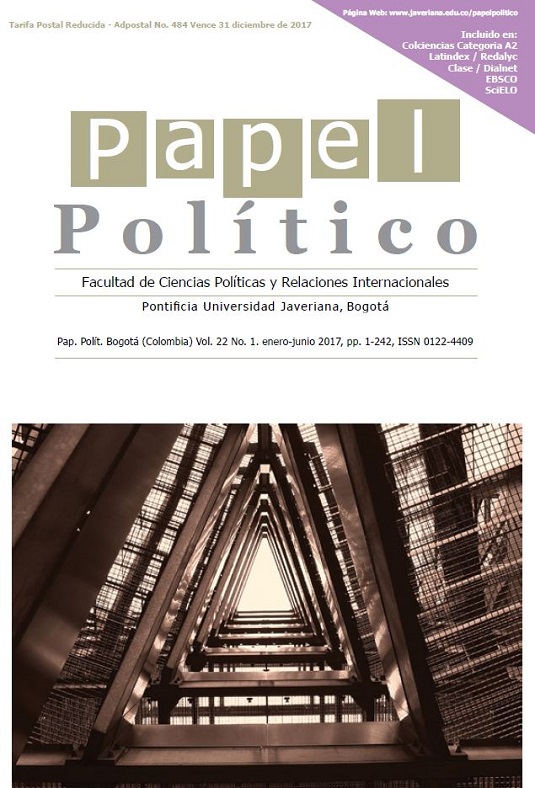Abstract
Este trabajo advierte que los imaginarios institucionales de la democracia representativa despojan a los individuos de la facultad de juzgar en común las situaciones del mundo que comparten en un espacio común, estableciendo universales que reemplazan el juicio individual y colectivo, para decidir y juzgar por anticipado, en nombre de los individuos, los eventos del mundo social. A partir de ahí, se logra evidenciar que la democracia funciona como un extraórgano que compensa la pérdida de la facultad de juzgar, y realiza los juicios y los deseos de los agentes sociales que viven un mundo común juzgado anticipadamente por un superpoder que emerge del modelo económico capitalista-liberal y de la mundialización económica y política. Se recurre a la antropología filosófica y a la teoría de la compensación para revelar que el capitalismo liberal adopta la democracia representativa como un modelo político que le permite asumir la orientación de la vida del individuo, sin apelar a la fuerza para arrebatarle su facultad de juzgar y decidir sobre su mundo. Se pudo determinar que la democracia y los derechos fundamentales cumplen la función instrumental de compensar en el individuo la pérdida de autonomía para juzgar en común el mundo social y político en la era de la mundialización. Desde ahí se puede comprender el alcance de la democracia y los derechos fundamentales cuando ambos resultan incompatibles con los propósitos capitalistas.
This journal is registered under a Creative Commons Attribution 4.0 International Public License. Thus, this work may be reproduced, distributed, and publicly shared in digital format, as long as the names of the authors and Pontificia Universidad Javeriana are acknowledged. Others are allowed to quote, adapt, transform, auto-archive, republish, and create based on this material, for any purpose (even commercial ones), provided the authorship is duly acknowledged, a link to the original work is provided, and it is specified if changes have been made. Pontificia Universidad Javeriana does not hold the rights of published works and the authors are solely responsible for the contents of their works; they keep the moral, intellectual, privacy, and publicity rights.
Approving the intervention of the work (review, copy-editing, translation, layout) and the following outreach, are granted through an use license and not through an assignment of rights. This means the journal and Pontificia Universidad Javeriana cannot be held responsible for any ethical malpractice by the authors. As a consequence of the protection granted by the use license, the journal is not required to publish recantations or modify information already published, unless the errata stems from the editorial management process. Publishing contents in this journal does not generate royalties for contributors.



